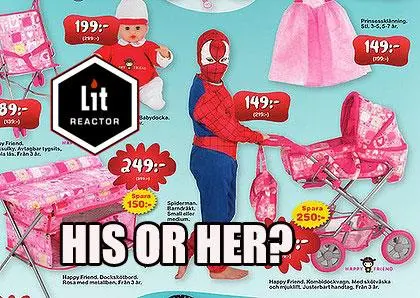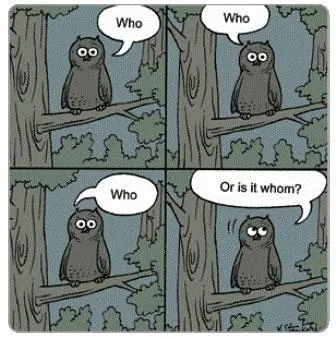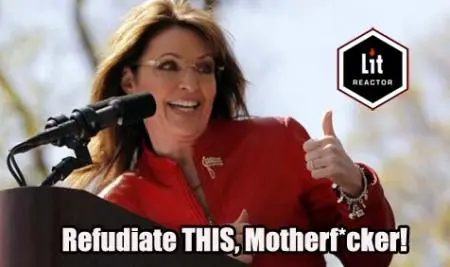2012 is almost over, and the predicted apocalypse was (again) a flop-- so it’s time to get your shit together for 2013! I know you have probably already purchased a gym membership and sworn off quadruple mocha cappuccinos, but did you consider the health of your writing? Well, you should—it’s lookin’ kinda flabby! Here are 10 grammar-related resolutions to get your writing back in shape.
1. I will stop using the plural pronouns their, them, and they to refer to a single subject without a defined gender.
I don’t even know you, but I know you are guilty of this (because I am):
- When an employee gets a new computer, they have to set up their preferences.
- I picked a name for the Secret Santa gift exchange, but I don’t know what to get them.
Grammatically, these sentences are awful, though they are not uncommon in today’s vernacular. Note how the verb in the second part of the first sentence also becomes plural even though it’s clearly a single person the sentence is referring to in the first part. *Shudder*
Traditionally, English uses the pronoun he to refer to any person whose gender is unknown. In the sentences above, an employee and a name both refer to a single person whose gender is not specified. However, our culture is changing, and we no longer accept he or other male-gendered pronouns and nouns to serve as defaults because we feel it’s sexist. Our culture has changed, but our language has not; there are no gender neutral singular pronouns with the exception of it¸ and we don’t use the word it in reference to people. It’s rude. Only animals and things can be its.
So what are we to do? The proper way to deal with this is to use his or her, him or her, he or she.
- When an employee gets a new computer, he or she has to set up his or her preferences.
- I picked a name for the Secret Santa gift exchange, but I don’t know what to get him or her.
Ok, I know you hate the way that sounds. And it might still be considered sexist because he appears first. The best way to avoid these pitfalls is to recast the sentence to make the subject plural to begin with:
- When employees get a new computer, they have to set up their preferences.
When making it plural is not an option, you may have to give the sentence a bigger makeover to get it to work without offending either the grammarians or the flag-bearers-for-fairness:
- I don’t know what to get for the person I selected for the Secret Santa gift exchange.
2. I will not use the word are instead of our even if they kind of sound the same when spoken aloud.
Are is the verb to be conjugated into the simple present tense, and our is a possessive pronoun.
- This is our finest hour. – Correct usage
- This is are finest hour. – Incorrect usage
3. I will not use an apostrophe before the s when creating plurals out of commonly-used acronyms.
Consider acronyms like CEO and DVD. All you need to do to make them plural is add an s. Also, the s should be lowercase while the rest of the acronym should be in capital letters.
- DVDs not DVD’s is the proper way to refer to more than one DVD.
- CEOs not CEO’s is the proper way to refer to more than one CEO.
4. I will not mix my metaphors.
Watching CNN recently, the broadcaster explained that the coming financial apocalypse is being called “a fiscal cliff” because the economy will “hit a wall.” So, are we at the top of the cliff running toward the edge, or are we already at the bottom, running toward the wall? While not completely broken, when using a cliff as a metaphor, most people assume you are talking about falling off a cliff from up high. I suppose you could also face disaster if you were to run quickly toward the bottom of a cliff—or a wall. Both are unpleasant to be sure. However, it’s a bad use of metaphor. Then again, the media often bungles perfectly good metaphors.
5. I will not use whom just because I don’t understand how it is used, and I am worried that the Grammarians will get me if I use who instead whom.
Lately, I have noticed my colleagues using whom often and incorrectly. Thanks to LitReactor, the word is out that I am a grammar nerd, so it could be that people I work with and hang out with feel suddenly insecure about their written communications to me. I find that writers, when they want to sound like they know what they are doing but don’t want to actually look up the rule, overcompensate by using words and usages that sound smart. Perhaps I am over-analyzing, but I have never seen whom (and whomever) used so frequently and so incorrectly.
For the record, both who and whom are pronouns. (Same goes for whoever and whomever.) However, they have different jobs in the sentence. Who is a subject. Whom is an object.
Subjects do things. Who is a subject like I, we, they, she, he, it.
- Who threw the ball? I/we/they/she/he/it threw the ball.
Objects have things done to them. Whom is an object like me, us, them, her, him, it.
- To whom was the ball thrown? It was thrown to me/us/them/her/him/it.
I am going to steal Grammar Girl’s excellent example of how to remember subjects and objects. Consider this sentence:
- I love you.
I is the subject of the sentence. You is object of the sentence. You are the object of my love. And if you were to ask for clarification, you might ask, Whom do you love? To which I would reply, I love you.
Here is an incorrect usage that I have seen recently:
- Whomever spilled coffee all over the floor in the kitchen should clean it up.
Here, whomever is being used a subject for the verb spilled. It should be whoever because we are talking about the doer of the spilling.
Consider another way to say it. Does it make sense to say:
- Whom spilled the coffee all over the floor?
Nope. It should be:
- Who spilled the coffee all over the floor?
Ok, now you know, so spread the word.
6. I will ensure that my subjects agree with my verbs in number no matter how far apart they are in a sentence.
A sentence must have a subject and a verb. The subject, as you just learned, is the doer of something, and the thing being done is the verb. Verbs are often called action words because they describe an action being performed. The verb in a sentence must always be conjugated for the proper number of subjects doing that verb. For instance, if the subject is singular, the verb must also be conjugated for a singular subject.
For example, Sarah is a singular subject (one person)
- Sarah eats sandwiches.
Sarah and Bob is a plural subject (two people)
- Sarah and Bob eat sandwiches.
In the first example, the verb is conjugated for a single person—eats—and in the second example, the verb is conjugated for multiple people—eat. This might seem simple enough, but if your verb is placed far from the subject, sometimes writers forget what the subject was and conjugate wrong. For example:
- Sarah, the girl from my chemistry class, and her hot-stuff boy-toy, Bob, eats sandwiches. – Incorrect
- Sarah, the girl from my chemistry class, and her hot-stuff boy-toy, Bob, eat sandwiches. – Correct
With so much information between the two subjects, it can be easy to forget that the verb to eat needs to be conjugated for a plural subject and not just for the subject placed nearest to the verb in the sentence—Bob.
7. I will not use a word that is ridiculous just because it made it into a dictionary.
I hate to break it to you, but dictionaries do not dictate good usage. Yes, you have been lied to. Just because a word has made it into a dictionary does not make it a good word. Dictionaries admit words on a sort of democratic basis. If enough people say something, it becomes a word. We seem to have this fascination with things being a word or not being a word (probably residual effects of schoolyard taunts), but I am here to tell you that just because something has been deemed a word by some dictionary at some time in history, it does not mean you should use it.
Let’s take the word irregardless for example. According to Merriam-Webster.com, irregardless has been a word (officially) since the 1920’s. It cites several instances in which the word was used. Notice, however, that the dictionary notes that the word is “nonstandard” and that it was likely a “blend of irrespective and regardless”. So, the dictionary says it’s a word, but it also says it’s a word that became popular over time and that is not, exactly, a word that should be used in lieu of either regardless or irrespective. Either of those words would be a much better choice than irregardless.
A dictionary is a great place to find out how words evolved. Some words fall out of favor, some become popular, some are combined with other words to create new words, but that doesn’t always mean you should use them. Consider this—when Sarah Palin’s refudiate becomes a word, are you going to use it?
8. I will recognize the difference between login and log in.
Log in is a verb + preposition pairing. A login is a noun created by people using the verb + preposition pairing as noun. A person must enter his or her login in order to log in to the system. Get it! Got it? Good.
9. I will not type two spaces at the end of a sentence.
This might be harder for some people than for others. I think if you learned to type after 1990, then you probably never put two spaces after a sentence ever. If that’s you, go ahead and skip to number 10.
If, however, you learned to type before the swinging 90s, then you might need to be released from your double-tap prison. Again, in the olden days, we had to deal with typewriters and printing presses, so rules were created to accommodate their shortcomings. Rob Hart’s excellent article Down With the Double Tap offers more explanation about why this practice became the norm. Nowadays, we have computers, so the reasons no longer apply. The number one reason why you can give your space bar a break is this: YOUR COMPUTER DOES IT FOR YOU! Unless you still write on a typewriter. Stop. Double-spacing. After. Every. Period.
10. I will read LitReactor every day and do whatever Taylor tells me to do.
Happy New Year, everyone! Thanks for reading! I look forward to lecturing you with nit-picky grammar rules in the new year!
Want to take your writing to the next level? Check out our slate of online workshops.

About the author
Taylor Houston is a genuine Word Nerd living in Portland, OR where she works as a technical writer for an engineering firm and volunteers on the planning committee for Wordstock, a local organization dedicated to writing education.
She holds a degree in Creative Writing and Spanish from Hamilton College in Clinton, NY. In the English graduate program at Penn State, she taught college composition courses and hosted a poetry club for a group of high school writers.
While living in Seattle, Taylor started and taught a free writing class called Writer’s Cramp (see the website). She has also taught middle school Language Arts & Spanish, tutored college students, and mentored at several Seattle writing establishments such as Richard Hugo House. She’s presented on panels at Associated Writing Programs Conference and the Pennsylvania College English Conference and led writing groups in New York, Pennsylvania, and Colorado for writers of all ages & abilities. She loves to read, write, teach & debate the Oxford Comma with anyone who will stand still long enough.











